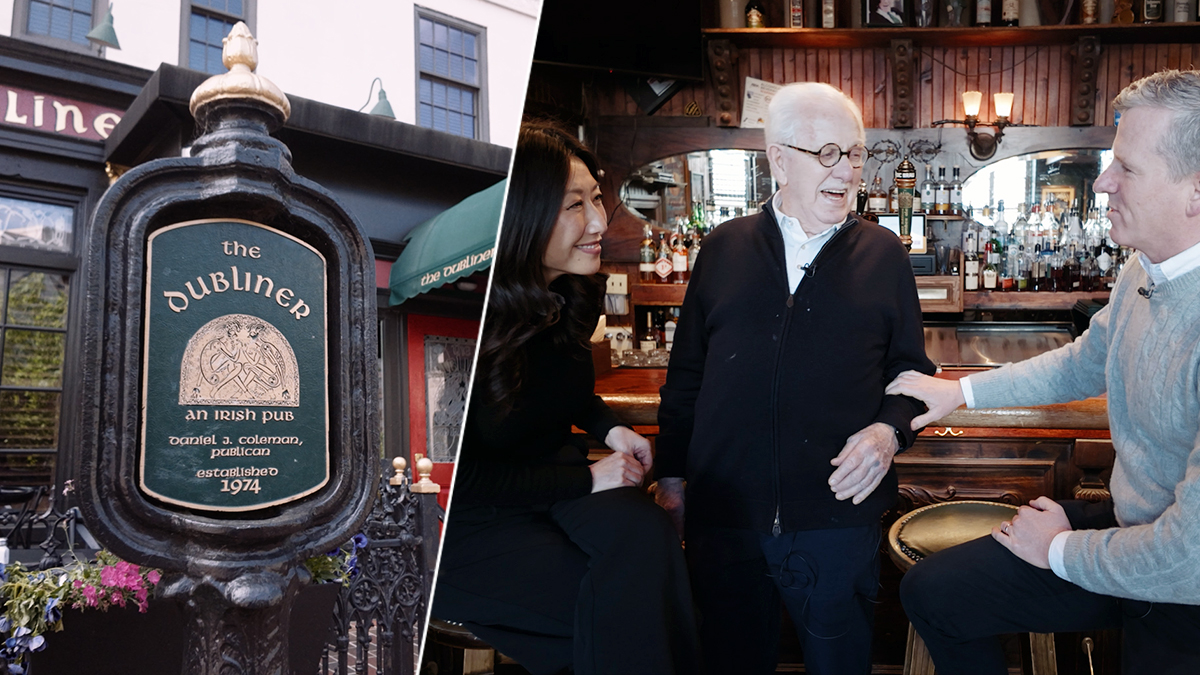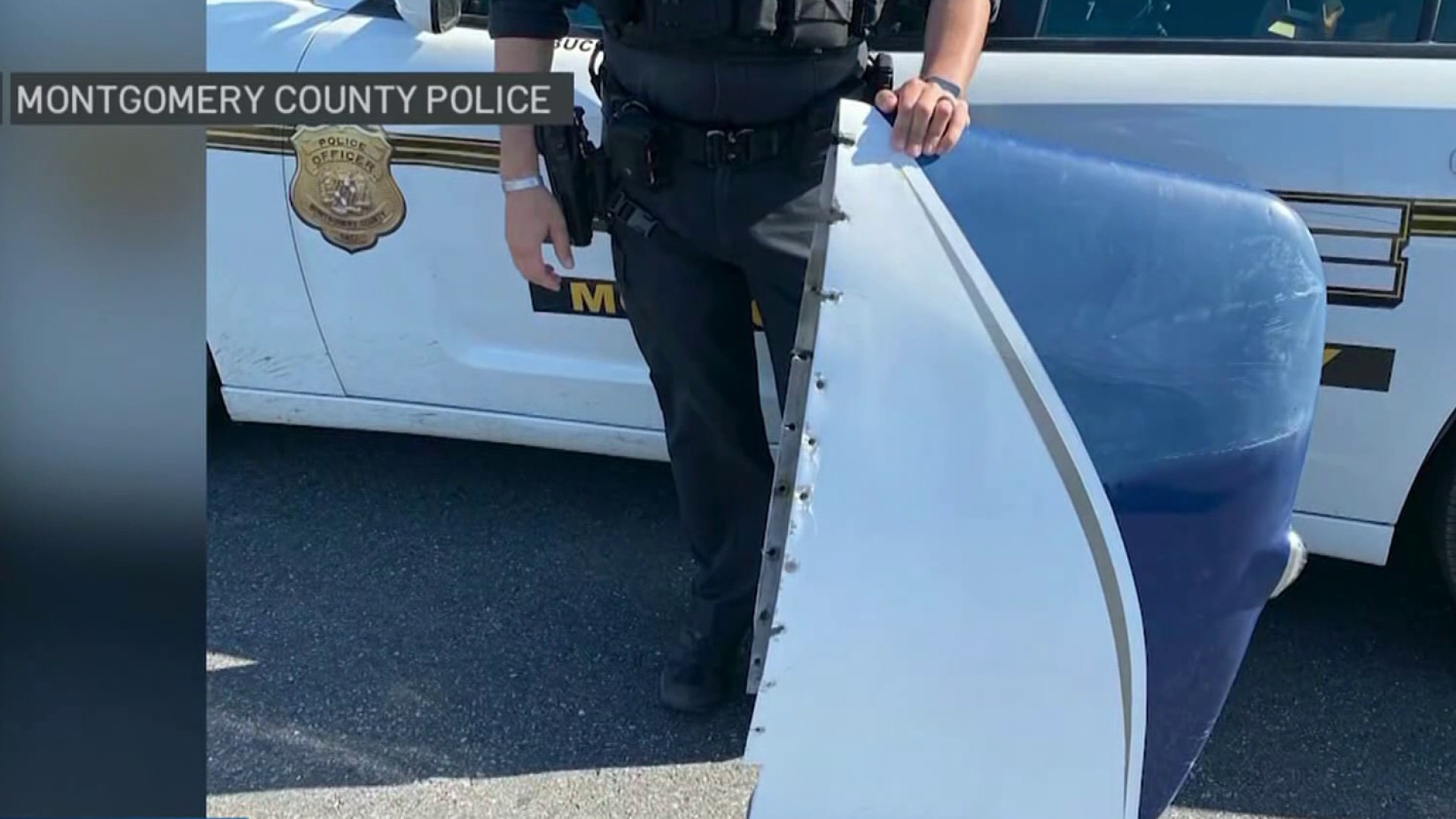The whirlwind that was Marion Barry's life is reverberating in his death.
Our modern day media (Twitter, Facebook, on-line news outlets, print and TV, etc.) exploded as expected with coverage ranging from earnest analysis to unfiltered praise to utter contempt.
The days ahead will be no different.
If you are in the crowd that was tired of Barry's melodramatic life, you may want to buy those super quiet Bose headphones and sleep blindfolds. (And stop reading here.)
The emotional debate over Barry and the lead-up to his funeral - what an event that will be -- will barely pause for the Thanksgiving holiday.
Many of you know the Notebook's long journalist's association with Barry and our book, Dream City, with co-author Harry Jaffe.
We won't run down all the good or bad of Barry's political life.
Local
Washington, D.C., Maryland and Virginia local news, events and information
But a few remembrances.
In late October 1989, your Notebook left The Washington Post for NBC4. It was a gamble and we knew nothing about TV reporting. As it happened, my very first "live shot" outside of the studio was the night of January 18, 1990 when Barry was busted in the FBI sting, and NBC4 was first to report it.
But this correspondent was so green that the TV editors wisely dispatched veteran reporter I.J. Hudson to do the live report and interview me about what had happened. (Still thanking you, I.J.)
In the December prior to his arrest, we went to visit Barry in his office in the District Building. (This was before it later was renamed for John A. Wilson). In switching from a print reporter to TV, we wanted to talk to Barry about how our coverage of him might change.
Barry sat in a chair, fussing and fumbling in a drawer filled with a jumble of neck ties as we each spoke frankly about news coverage as we always did, sometimes humorously; sometimes in serious dispute about what was news.
At one point your Notebook bluntly asked Barry about the endless series of controversies over his awarding hefty city contracts to friends and, yes, cronies.
Why did he award such contracts but then not make the contractors do the jobs? "They get all the money, the citizens don't get the service, and you get all the blame in the press!" we said. How did that help Barry?
Barry agreed it was bad for him and he vowed that he would "get tough" on those contractors.
"No you won't," we replied. It just wasn't in Barry to ride herd on those who were making him look bad. It was an odd flaw that undermined him time and again.
And as many told NBC4 in their remembrances on Sunday, Barry never used contracting and government grants to personally become rich via the people he made rich. Prosecutors pursued Barry for many things, but enriching himself was not one of them.
When Dream City was first published in 1994, Barry was telling us that he wasn't going to bother to read it. But in a telephone call, he said he wanted to be given a copy. "Why," we asked. "So I can throw it into the trash," he said as we both laughed. Truth be told, Barry never challenged any of the reporting in the book.
Barry at heart was a political person through and through. He believed in the adage "no permanent friends or permanent enemies." He would say often, "it's not personal, it's politics."
Political commentator Mark Plotkin famously said for Barry there was no future or past; he lived in the moment, minute to minute. It was an insightful comment and remained true to Barry's death.
And Barry's sense of time was notorious.
After a long series of events in which Barry was egregiously late, we asked Barry why he was late so often. "I'm not late," he replied. "It doesn't start until I get there."
D.C. Council member Jack Evans (Ward 2) likes to recall when he and Barry once were to attend a funeral in the city. Evans was frantic that the funeral had begun and he and Barry had not even left their offices. Evans recalls Barry finally was ready to go. Arriving at the church, the service well underway, Barry led Evans right down the center aisle to the front row as if they were the first to arrive. "And he was welcomed warmly," Evans says, still a little perplexed by it all.
Cora Masters Barry has been separated from her famous husband for a couple of years, but had remained a close confidant and personal advisor as she had been for decades.
During the Democratic primary last spring, Barry got out of his sickbed to campaign for Mayor Vincent Gray, in a tough race against eventual winner Muriel Bowser, whom Barry also later supported as the Democratic nominee.
Cora Barry noted that Barry's doctors weren't thrilled with Barry's decision to get out on the campaign trail, bullhorn in hand. They were saying he needed rest, not the exertion of a campaign.
But Barry was undeterred and Cora Barry knew why.
"This is what his whole life has been about," she told us last spring in the 20th anniversary edition of Dream City. She also privately worried about Barry's declining health, but she knew Barry. "He knows this is probably his last political go 'round. This is what makes him tick."
Yes it did, yes it did.
Tom Sherwood, a Southwest resident, is a political reporter for News 4.



